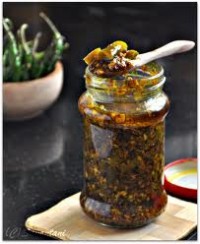Jitia puja
The festival of Jitia is one of the most important festivals Nepali married women, especially belonging to the Tharu community and the women from Mithilanchal of Nepal. On this festival, a fast, named Jitia vrata is performed by the mothers for the wellbeing and long life of the sons. Observed on Aswin Krishna Astami usually during the Pradosh time, the women take nirjala fast (fast without water) on this day breaking it the next day on the end of Ashtami. However, women might have to continue the fast for two days if the Ashtami begins in afternoon, sometimes.
This fast is also called Khar Jitia as nothing is put in mouth, not even a drop of water. This vrata is believed to have the power of saving children from severe accidents if their mother has performed it. There is a tradition of eating fish and marua (millet) chapatti (roti or flat bread) on the previous day of the fast and in the night prior to the fast, they take a meal just before the beginning of Ashtami. The children are often woken up and fed the preparation and this entire process is known as Ongthan.
These rituals are performed for the welfare of the son in the family during the time of Pitra Paksha or Shorah Sraddha every year. The mother offer mustard oil and khilli to the female ancestors and Lord Jimutvahana along with offering bangles and curd to eagle and siyarin. The ritual of Othgan takes place before the sunrise and after that the mothers are not allowed to eat or drink even a single drop of water.
The Jivitputrika fast (above mentioned fast) is observed on the day of ashtami and the Paaran Puja is performed on navami after sunrise. For taking the fast, first of all, the mothers take bath in the morning and pray to Jimutvahana and stay without eating or drinking for the whole day. Then, they need to hear Jimutvahana Katha along with Eagle-siyari katha in the day and offer Prasad (food offerings) to the lord. After the sunrise of the navami, the paaran of the fast completes and it is observed with full dedication and faith praying for the long life of the son in the family along with the welfare of the family. It is also believed that the family will be blessed with offspring to continue the family name by praying Jitmutvahana made of grass where this idol of grass is put into the water and offered bamboo leaves, chandan, flowers, etc. with prayers.







